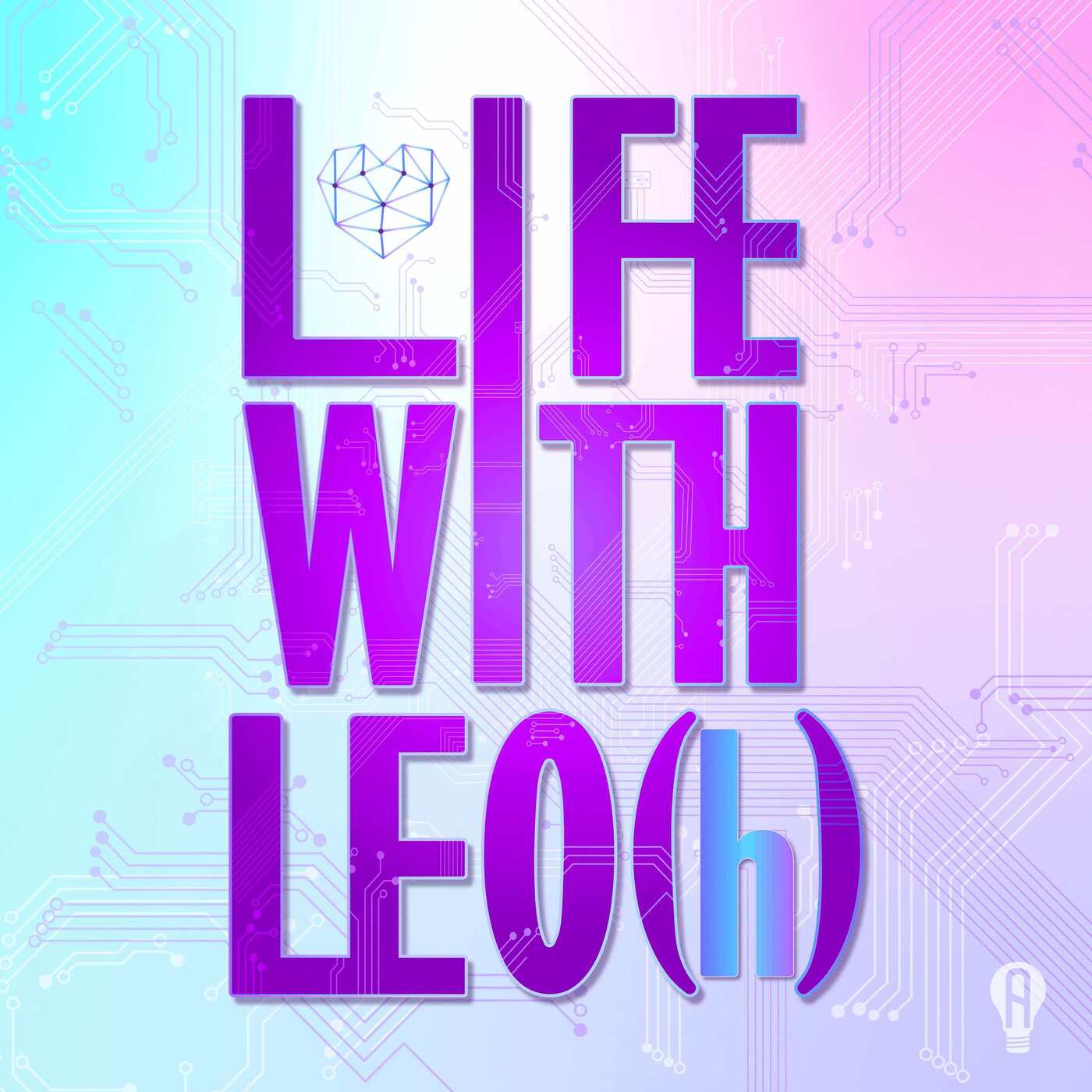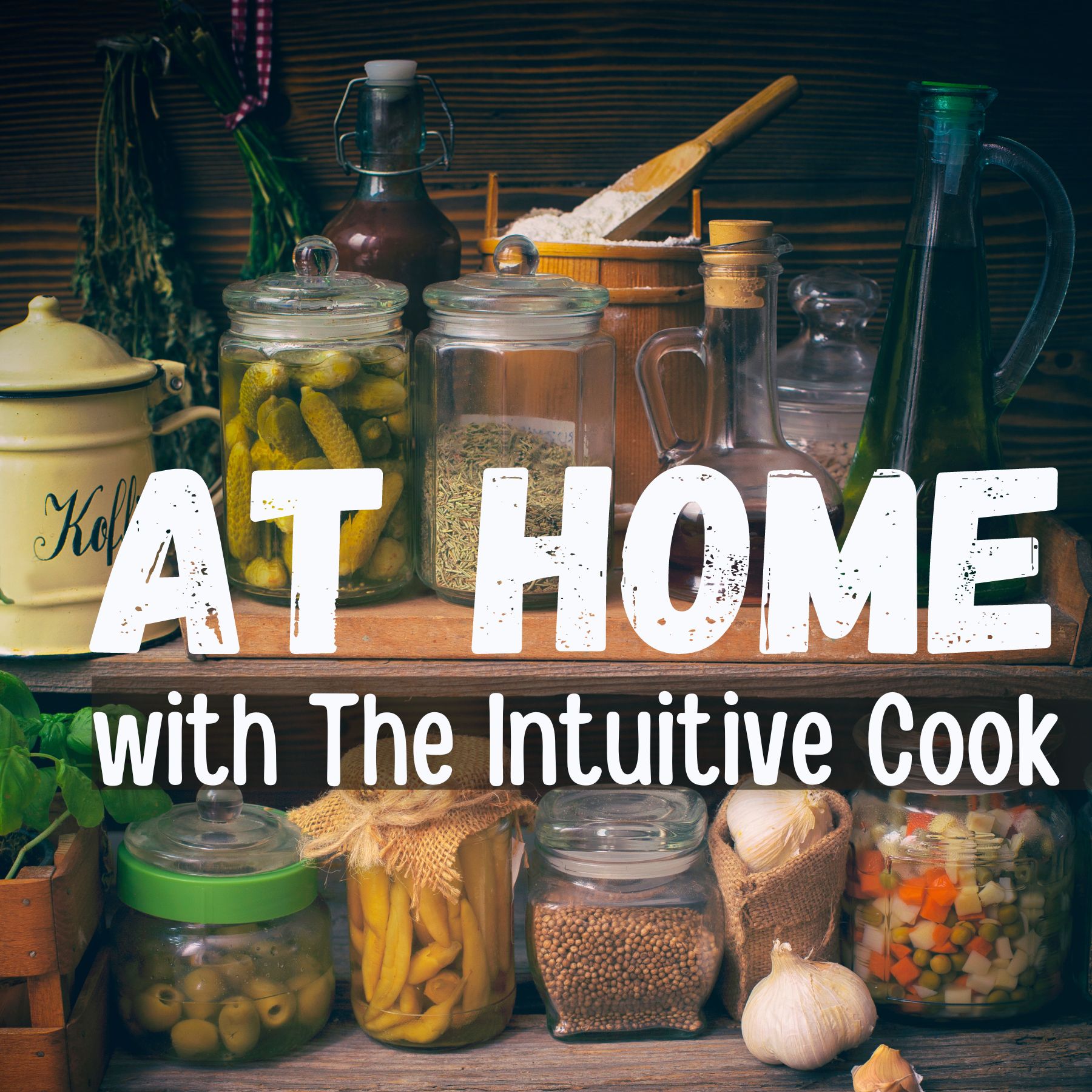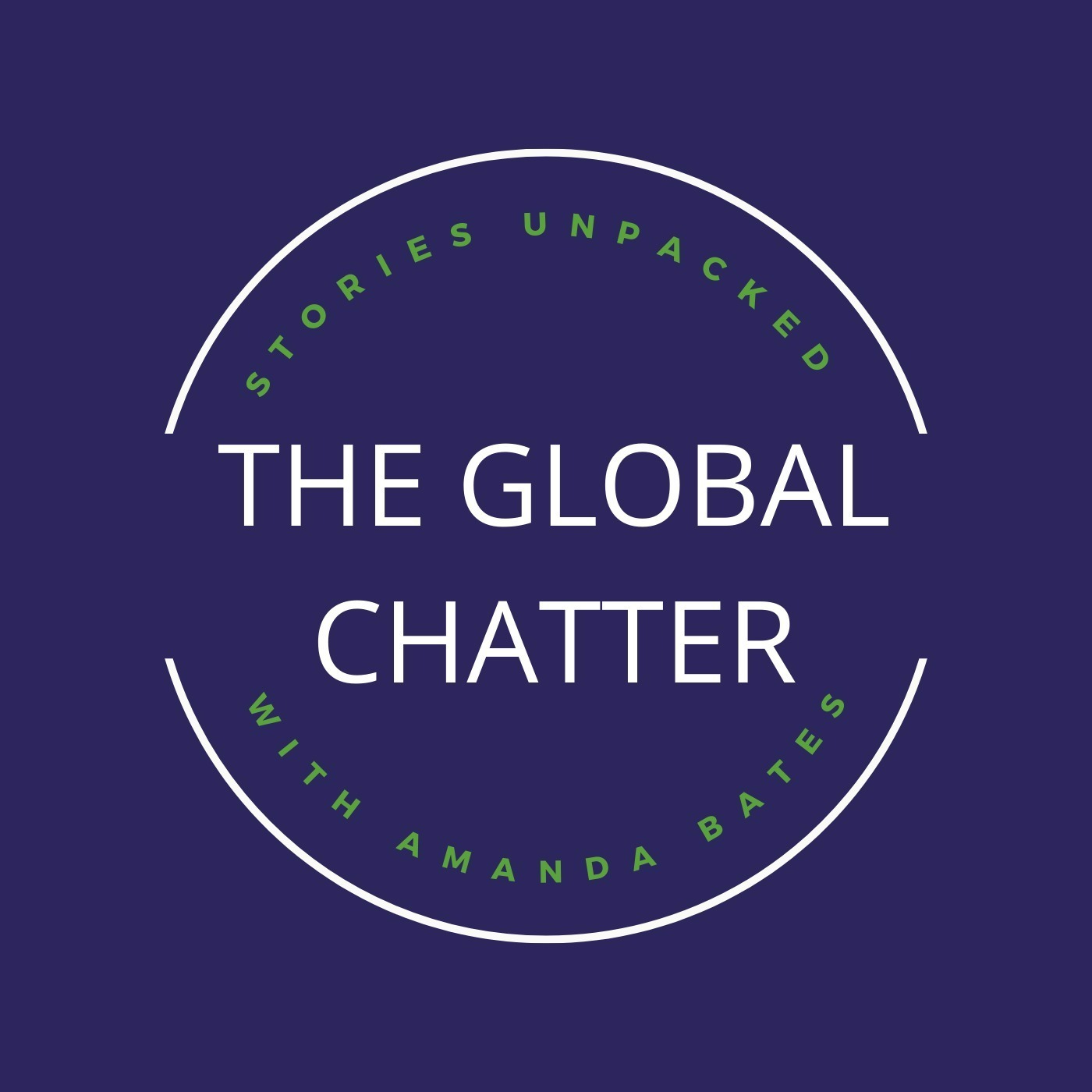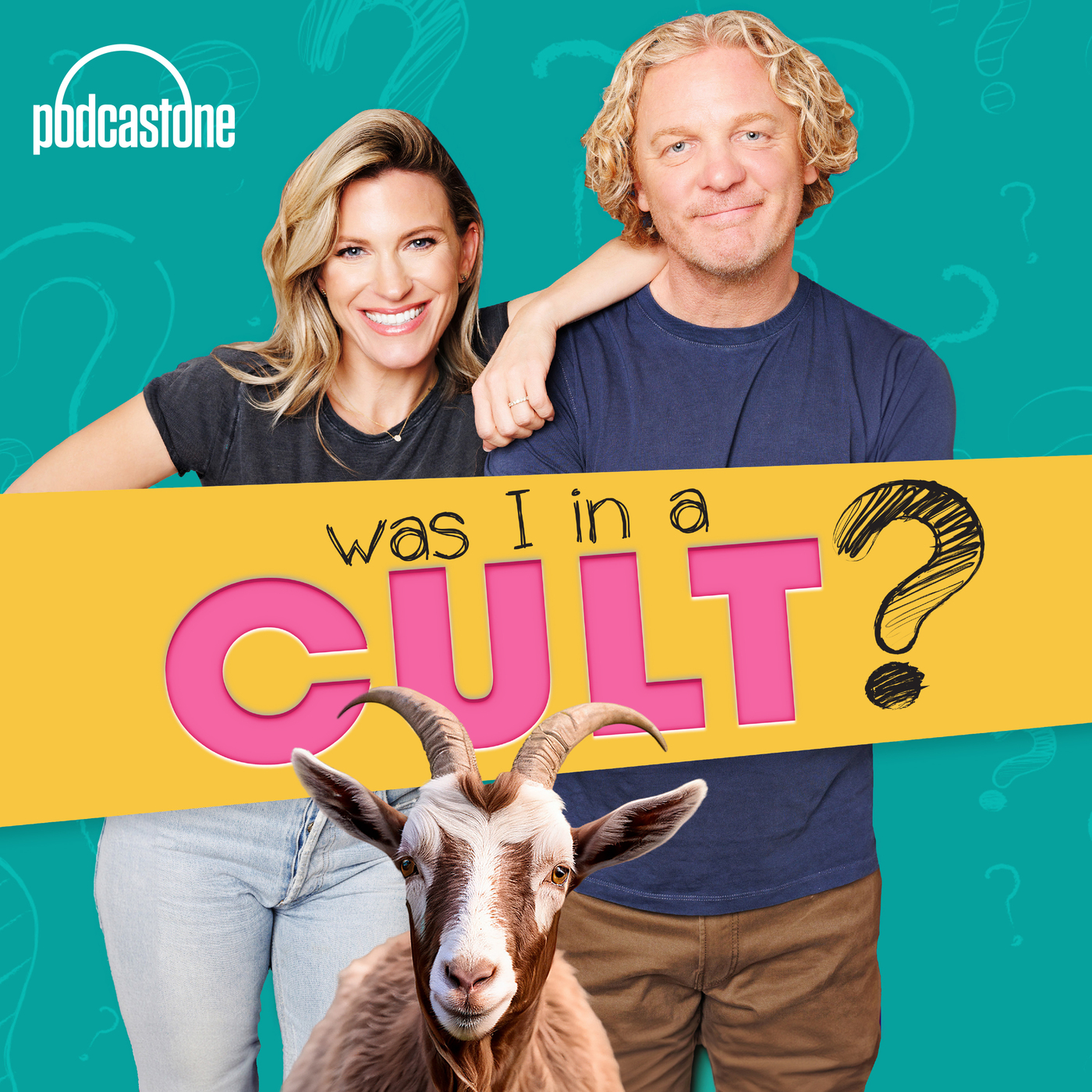
Sane and Simple Podcasting
Helps DIY podcasters manage and grow their podcast with no nonsense, timely tips and tricks from a long time content creator and Podcast Service Provider. Tips include multiple mediums like audio, video, newsletters and using ChatGPT to get share their experience, their stories, their skills out there so they can spend more time connecting than creating.
www.coffeelikemedia.com
Sane and Simple Podcasting
How to talk through your audience growth planning
Are you someone who talks to process ideas? This conversation explores how voice messages, especially on platforms like WhatsApp, can be a powerful coaching tool. They can provide timely feedback to help podcasters refine their skills while building confidence in their content. In this conversation, we share how we've been been using WhatsApp for audience growth coaching as well as how you can build a similar audience growth session with a podcasting peer.
Episode mentioned: Cooking with ChatGPT
😋 FREE COMPANION GUIDES are available the Thursday after this episode is released. https://coffeelike.gumroad.com/
✨Tandem Audience Growth Coaching Program (the one on one coaching I'm demonstrating this season with April):
https://www.coffeelikemedia.com/coaching.html
📜 April's Door Key Podcast places online: (history)
Buzzsprout |
https://doorkey.buzzsprout.com/
Substack | https://doorkey.substack.com
FREE 15 minute podcast optimization call: https://zcal.co/i/BLwUxyMv
✨ Have a few specific questions? Book a micro consult call here: zcal.co/coffeelikemedia/parkbenchsession
✨ Want to do a deeper dive into your podcast YouTube channel's growth, workflow, optimization? www.coffeelikemedia.com/consults
✨ Ready to commit to a 3 months growth experiment to really find out how YOUR YouTube channel can grow? www.coffeelikemedia.com/coaching.html
✨ Microphone: Samson Q2U✨
- United States: https://amzn.to/3Bk58e3
- UK: https://amzn.to/4g2pVlr
- Germany (ships to Denmark): https://amzn.to/4f2iY2t
🎵 Music: SourceAudio: https://www.sourceaudio.com/
😋 Host on Buzzsprout: https://www.buzzsprout.com/?referrer_id=2022201
👀 Record and go live with Restream: https://restream.io/join/Kro9rJ
April:
I've never worked like this before, like with the, the voicemails, but I think it really helps me as well. I think that I, it's like unlocked a whole thing because it's like while I'm listening, it's, it's like in the back of my mind I can be plotting or it's like I'm processing in the back of my brain.
(((Steph alone)))
Steph: Hello and welcome to the third season of Podcast to Connect, where we are sharing ways to help you grow your audience by looking at your greater media presence and your long term project goals. I am so happy to be joined by April from Door Key Podcast.
This season she has agreed to let me share a lot of the information and the ways that we've been working together. And that is so incredibly true, especially for this episode where you just saw a bit of what April was talking about with the voice messages that we use to communicate, to work together. And we're going to dive into a whole lot around that method of working together around those methods, around that method.
Why?
Because tools like WhatsApp, which is the main tool that we use, the voice feature there, can provide a no pressure way to get timely feedback. Very asynchronous. We can leave messages whenever we want, and man, did we leave lots of messages back and forth.
And being strong oral communicators as podcasters, it was really, really useful to focus on listening and saying what we needed to say and listening to what we needed to hear and not paying attention to any of the other stuff that comes with text.
We'll go into all of the advantages of using a tool like this for how we work together in this episode and we'll also talk about how you can create a work environment like this. Even if you're not working with me specifically, you can find someone else and create this kind of environment. And we list out some pretty important factors that you want to keep in mind if you decide to do that.
And after you watch April and I share this experience, you can create a verbal workspace like this yourself. All of the eight episodes from this season will have a free companion guide and they'll be available the week after this episode comes out over at podcast to connect.substack.com. all right, let's just get to this. What did we do? How did we do it? And how did it help her audience? Spoiler: a lot. Let's go.
(((Steph and April talking)
Steph:
I like voice messages, especially the ones that don't cut off after 30 seconds or 60 seconds because those are very frustrating, like LinkedIn and Instagram and I think Facebook. I think there's a few of them that cut you off really early, and they don't even beep at you. They just stop.
April:
Oh.
Steph:
And then you're like, I don't know where I left off.
April:
Oh, geez.
Steph:
But WhatsApp, like, some of them are like, I try to cut mine off at five minutes so that they're at least in chapters. I don't. I want you to be able to take a breath every now and then. Like, absorb what was said. Not just you, but anybody. Because I. I use voice messages with a lot of my friends globally, and I just, like, I will just go off and then I'll go, ha ha. That's four minutes. We're going to stop this one now and go on to the next one. I process some things with writing and some things with speaking. Which one do you. Because I know you're. You're a writer girl.
April:
I process very oddly. Like, I've always listened to things. Like, I remember being a kid and having records of Disney movies each myself, and I can still hear it in my head and recite a lot. Like, I can name all seven dwarfs because in my head I hear Snow White. Naming them in the. Like, because it was like the soundtrack to the movie. Does that make sense?
Steph:
Yeah, yeah, yeah, it does. It does. Okay, are we talking, like, vinyl? Like 33 and 70, 75. No, wait, 45, 33. These are like the sizes or the frequent. I don't even know what that stands for. I just know the sizes. Like, the smallest one was 45, then 33 was a fairly big one, and then there was a big, big one. Was that 78?
April:
I think this would have been the 78. They were a big. It was like the whole movie. Like, the soundtrack of the movie. Like Snow White talking, Cinderella talking. Like, oh, my gosh.
Steph:
Okay. Speaking of, since it's. This is probably going to come out in. In October. Ish. During your Spooktacular on Door Key Podcast. Speaking of spectacular, we had, like, one of my favorite vinyl albums of all time. Was this, like, Halloweenesque kind of audio, like, store, like, scary stories for Halloween kind of thing. And I don't even know the stories that were on it. I just remember. I think Vincent Price must have been the narrator, because I hear his voice in my head when I think about it. Yes, it was just. It was just like, you know, audio stories on vinyl, like you're talking about. But I think that's a really good point. I think for. For podcasters that process by talking. I think having that talking space can help with the other stuff, especially the writing stuff, because it's like when you write, you write and it goes out and somebody might text back, like in a comment, but there's no talking in a. Like, there's no audio feedback on it.
April:
Yeah. And when I've noticed that, like, when I. When I write a script, I have to read it out loud a few times because sometimes what I write, it makes perfect sense and it flows, but when I say it, it's like, oh, wait a minute, no. So I kind of have to fix it or whatever.
Steph:
I do that with emails, too. When I'm sending emails, especially the first time to someone where it's kind of a longer email. And it's. It's like a business one, but it's not a formal business one. I want it to sound slightly speaking ish, not writing ish. And I do that. The same thing. I read it out loud because I'm like, there needs to be more transitions if somebody's, like, reading it like that. The versus, like, the formal ones can be awkward as all hell. Like, I don't know why, but they just can be. Yeah, yeah. No, there's something. Yeah, yeah. Writing and speaking is, they're, they are very different creatures. Yeah.
Okay, let's back up a second and talk about how we have been working together. So we. Like as far as the platforms we've been communicating on. See, now I'm getting all formal platforms. We've been using email, Google Drive, because I live in Google Drive. So I've set up a lot of things for us to share stuff back and forth there. And primarily speaking, wise WhatsApp.
April:
Yes.
Steph:
Yeah. And I don't really want to show our conversation because they're private, but I don't know. For folks who haven't seen. Here's something. So for folks watching the YouTube channel, I'm just showing the voice messages that we send back and forth. This is a good representation. See how many I sent. (((shows a Whatspp page with many voice message bubbles one after the other)))
See how many I said versus April's reply. I'm always more talkative.
April:
I'm very chatty as well.
Steph:
Obviously you are. You are. When I listen to someone, especially when we're talking about these conceptual things and planning things, I can. I never thought of it like this, but I can start planning in my head because I don't have to worry about reading because I have eye issues and I'm Slightly dyslexic and there's all of these barriers between me and reading. Despite the fact that I am a massive bookworm. Ignoring all of that, I, I'm freed up when I listen to somebody talking and so I can, I can think a lot better that way. So it actually is really, really helpful for me as well.
April:
Yeah. And I've, I've never, I've never worked like this before, like with the, the voicemails. But I think it really helps me as well. I think that I. It's like unlocked a whole thing because it's like while I'm listening, it's, it's like in the back of my mind I can be like plotting or like, you know, like arranging things in my. It's like I'm processing in the back of my brain.
Steph:
Yeah.
April:
Yeah.
Steph:
I think that's why I'm really addicted to the, the voice function on ChatGPT's mobile app is because it's the same thing. I can just keep asking questions and unlike me trying to like with, with real humans, like only do like four hour per message. I just can go keep going back and forth with Chatty for forever because it's not a person and I'm not, I'm not going to overload them with anything.
April:
Yes. When I watched that, that YouTube video you did where you were cooking and you were like, well, hey, wait, can I substitute this for. I was like, you can, you can have like a cover. I love that. I thought that was so cool. And I'm. I'm actually gonna, gonna try that.
Steph:
Love it, love it, love it. And that's on Chatty and Me. I've just rebranded the name Chatty and Me: My ChatGPT exploration. The longest name that it needs to be, but there it is. Chatty and Me should bring it up on YouTube. But. Yeah, but that. It's that back and forth where you can just say things.
And then some information comes back. Now what's. That's not. In a lot of those conversations that I tape for that project are the hallucinations that Chatty does or they start talking about something I'm not talking about or when they. A lot of times I'll delete the blips where it just stops and things like that. Or just the information that's so off course that I'm like, that's not even worth keeping in there. And that does happen. And that doesn't really happen between us when we're talking back and forth.
April:
Except I do get rambly Sometimes I, I'm like, oh, oh. As my. I was so happy when I discovered the delete. Like, I could just kind of. I was like, oh, shoot, how did I not know that was there? So you've been spared a few, like, rambly.
Steph:
Likewise. Likewise. Yeah. There's a few apps that have voice functions like that where they don't let you delete it. And I hate those because. And then there's ones that, like, you, you can delete for me or delete for everyone. I'm like, why would I just delete it for me if I don't want it to exist? It's not going to exist anywhere.
April:
Yeah.
Steph:
For anyone. Yeah. So I'm glad. WhatsApp is pretty, pretty useful for that stuff. And I've, I've been in groups in WhatsApp that use that, and that's kind of what sparked my, my interest in that. I was just like, oh, my gosh, this is amazing. There isn't a lot of, like, tiny text reading to go along with the conversation. So. Yeah. So that's primarily where, where we're talking about this stuff. Again, the Google Drive is the sharing of documents and files and things like that. And. But most of the talking about it has been happening on WhatsApp.
April:
Yes.
Steph:
And then what are we using Gmail for email for?
April:
Basically just to let each other know, like, hey, I've sent you a file. Yeah. You know, or, you know, sometimes I'll. I think I've sent you a few emails and been like, hey, FYI, this is what I'm doing today. Yeah. Each, you know, just so that you know what's. What's going on.
Steph:
Yeah. And if I get. Because I subscribe to far too many newsletters, so if I get like a newsletter or a notification from one of my groups and it's got a marketing opportunity in it, I'm like, forward. And I've been sending those as well.
April:
Yeah.
Steph:
So that, that's been useful. So it's. If it's on email, it tends to stay in email and kind of get forwarded and passed around that kind of thing. But yes, the majority of discussions and planning and my marketing challenges and probing and questioning, that stuff tends to happen in voice on WhatsApp.
April:
Yeah.
Steph:
And it's interesting because I was asking you some questions about the biggest takeaways from us working together, and you itemized it into this beautiful five really succinct things. Can I, can I share them? Is that okay?
April:
Of course.
Steph:
Okay, so one is engagement questions, which we talk about a lot in this season, so I don't think we need to go back into that again. Two is pre mid and post worlds. We have an entire episode on that. Three is helped me hone in on my voice and writing and podcasting, and we might delve into that in a minute because I love that one. Four is made sure I thought about the topics I picked, the reasons why, and I explained these things in the episode. We talk about that in the. In a few episodes. And five is Substack, which is not getting any. Like, is getting 0.01% attention in this series because we have so much to cover. But if anybody wants to do an entire Substack series with me after this, like season four, season five, please let me know. I would love to do a growth season on Substack. And thank you for making that list because I comparing that to what I thought were the highlights was really useful because there was a lot of overlap and that makes me happy. So this helped me hone in on the voice and writing and podcasting. Can you talk about that a little bit more?
April:
You just. You helped me be more concise with. With what I'm saying and gave me confidence in what I'm saying. That, yeah, it is okay to just be. Be myself and, you know, not be quite as. I was kind of torn between how formal and how I can't think of the word. I'm trying to. I'm sorry.
Steph:
You mentioned that in a previous episode about how you were trying to have, like, the information first in April is way, way, way behind. Like, you didn't want to be in the spotlight in the podcast.
April:
Yeah, I. I feel more comfortable. Like, I'm in a more comfortable place where I don't think that I'm trying to put myself forward, but I have kind of brought myself out a little more and I feel comfortable with that. Like, it helped. It's a good. It's a good spot, I think.
Steph:
Let's connect that. And I'm really glad I did hear that, and I am so glad about all of that. But I want to connect that to the WhatsAppness of what we just talked about, because I don't think that came through via email, because again, that email was more of like an information exchange. Google Drive was a file exchange. What was it that. Because I feel like it's in WhatsApp and I'm just. I'm. I'm making these questions up as I go today because I can't quite figure out the thing we uncovered by working this Way I'm trying to understand it as we're talking as well, but what was it about that kind of exchange with the voice and the back and forth and it being on the phone that was different than the other places.
April:
That we talked about it, I think, because it was, it was usually pretty, pretty immediate feedback. It was, it was very specific. It was put in a way that, okay, so I'm doing an episode about King Tut, whatever. You would be like, okay, so why, why did you pick this? And so the next episode I would do about Cleopatra, whatever I would think about you asking me from the previous episode. And so I would kind of try to use that going forward. It's, it's just like an added tool to my toolbox. I don't know if that's a good analogy, but it, I, I tried very hard to use what, what you've said or what questions you've asked and apply it to everything. And it kind of helped build.
Steph:
Yeah. My one main concern with having this be an audio. A lot of the times on WhatsApp is that information might have gotten lost or the emphasis might not have been there, or it's hard to scan audio as us audio folks know. So I'm curious how you took the information and where you put it to remember it.
April:
I keep it all kind of. I mean, I do take notes, but I, I kind of have it all in, in my brain. Or I'll use examples from like, like if you give me feedback about a social media post and I change it. So I'll, I'll look at the previous post and kind of try to go off of that. I don't know if that's the most efficient way, but if it works, it works.
Steph:
That's the important part.
April:
Yeah, but I, I do think it helps that, that we do communicate that way. And it's you specifically, because I, I'm very literal. Like, I, I'm very like. And the way, the way we communicate, it's like, you can, you can tell me something. And I'm like, oh, okay. And it's, it, it makes sense. And it. Because I think you're pretty literal too. And, and very matter of fact. And it's like, it, it works. I don't, I don't know how else to put that, but it works.
Steph:
I am incredibly literal and my autistic brain does not handle a lack of direction. So there's been a few times that you've told me something and I think you were just sharing and I was like, okay, but what do you need me to do with this? Do I need. Do you need anything from me or is this just like an information? So like I need kind of like a directive. Hey, brain, remember, don't do anything. Just listen. Oh, hey, brain, do follow up with this. Or hey, do you have suggestions? Like, I need like a tag with each thing because social cues over my head.
April:
And then you said that, and then so now I think about that. And so sometimes I'll be like, hey, this is just so that you're aware. This is what I'm, you know.
Steph:
Yeah.
April:
Or, you know, sometimes if it's like late on a Sunday night, I'll. I'll make sure that I leave you. You know, if I send you an email, I'm like, don't worry about this until Monday. Or, you know, like, it's because I. I need to get this out. But yeah, it's not Earthshatter, you know.
Steph:
And I'm never worried about emails. I even WhatsApp messages because I have folks from all around the world on my phone. The assumption for me is you get to it when you get to it. Even though it can be instant, it doesn't have to be. Yeah, you know, it's when you have time. And that's the thing. I still believe there's no such thing as a podcasting emergency, but. Because, I mean, I showed a few minutes ago the length of how many. Not just this length, but how many messages I can leave at one time, to be perfectly honest. Did you ever feel like if you asked a question and I answered that sometimes it was a little too much information?
April:
No, no, I don't, I don't. I don't think so. I think that. I think because we communicate the same way a lot, that it was just like. Yeah, so. No, I didn't, I didn't. I was. I'm actually very appreciative of all, all the information that, that you gave and I needed the information. So like, if you're sending me a message explaining how to, how to use Google Drive, because I had zero idea, like you gave me the information, I. I was so grateful. And it's good. It's all, it's all good information is what I'm trying to say.
Steph:
Thank you. Tutorials. Because I love to do really quick tutorials because some things do. Just describing them as useless.
April:
Yeah.
Steph:
And I think that's where like my gazillion years of being an instructor comes in handy, where it's like I can see myself starting to over explain and I'm like, Slow down, let them absorb, walk away. Questions will come back. You know, it's, it's fine. Just let it, let it go, let it go. So I was trying to even it out. Like, I love podcast editing. I can get lost in a waveform like crazy.
But with the interactive feedback, podcast growth kind of stuff or audience growth stuff, I. This is my favorite way of doing it by far, by far. Because you can tell the tone of someone's voice, but in both directions. Like, what's happening, what's being understood, what's still kind of unclear when there's still rumination versus decision time. I mean, it's just like the power of voice. When talking about shaping your voice project has just been so powerful for me. It's so much easier than sending like an audit report, which I still like to do.
But the follow up on that is, it's extremely different. Whereas this is that like you were talking about that immediacy of feedbacking back and forth and making sure that it's clear and implementing it step by step by step by step, which has just been so much fun to watch and.
April:
It's been a joy to watch you do your magic. Like, I kind of can conceive how you, how you work and I'm just like, oh, okay, I see, I see, I get it.
Steph:
Okay. And I couldn't have done any of this if it wasn't for your enthusiasm and your way to just implement so many of them so quickly. I've never seen anybody start a newsletter or like change how they do things like so quickly and, and consistently. And yeah, so it's been really inspiring to me too, because your enthusiasm fueled my enthusiasm.
So I think the perfect wrap up to this episode is in listing off maybe. Yeah, let's list off like three to five, because whenever I say a number, it always ends up growing. So let's just say a few main points of how people can do this if they don't, if they don't have the, the time or the funding or what have you to do it one on one with me.
How can they do this with someone else? Maybe a peer, fellow podcaster, so on and so forth, Preferably someone with a similar podcast. If you have a business podcast, someone with a business podcast, if you have an indie podcast, indie, what have you? Just a similar podcast. Because then you'll, you'll be able to build off of each other's stuff. But what are three to five things that they could keep in mind to have this kind of back and forth experience, possibly with WhatsApp or Signal or Telegram or something like that that has a voice feature. So let's see, what are the main things they should keep in mind when they do this?
April:
The first thing that comes to mind is trust. And what I mean by that is being able to get feedback from someone that not only is going to be honest, but that you trust has. Has your and your podcast's best interest at heart. And what I mean by that is that, like, you can send me a message saying, hey, maybe no with the side notes, and it's, it's honest. And I can, I can hear that and take that and be like, yeah, maybe no with the side notes. You know, and I, I think that's really important that, that I, I know that. I know that it's coming from. From a good place and an honest place. And. Gosh, yeah, I thought of something else and.
Steph:
Oh, wait, let me do the second one. Let me do the second one. So the second one we were talking about, you know, the going back and forth and keeping in mind, you know, kind of addressing one thing at a time and doing it kind of bit by bit, like iterating through the things that you're talking about. If one day someone has this question and you're kind of brainstorming that maybe wait until the next day to do the reverse and do the other person's issue and then do that. So don't, don't try to tackle too much at one time, because I think then is when people start to procrastinate or they can't start to do the thing. So there needs to be time and space and so increments to do it in increments.
April:
Yes. It kind of ties in with the trust thing, not taking it personally. So. And again, I'll go with the, with the side note thing. Like, I didn't take that personally. Like, obviously, you know, like, because it's honest feedback. And so I think it's important that if you're working with someone like that, that, that you don't take anything, any feedback that you get as a personal attack or anything, because it's, it's not meant like that. And something that I appreciate is that any of the feedback that you have given me is it's always been constructive, and I've never felt like it was. I've never taken it personally because I, I know what spirit it is given in, and I think that's important.
Steph:
Yeah. And absolutely. Yeah. Oh, that's such a good one. Such a good one. Another one that I think pings off of what we said already is to agree on how you're going to do it before you start. I have an absolute hatred for certain programs that, for like project management and stuff. And I will not work on projects that involve some. So I don't know if anybody else is like that. But if you really, really don't want to do voice, or if you really, really don't want to do emails, or you really like decide on how you're going to do it before you start, how are we going. I mean, it can always evolve and change as long as you agree upon how you're going to do things. But agree upon the basic structure of the collaboration as well as the timeframe that they're going to do.
I think three months is the perfect time period because at the end of the three months, no matter how much, how much growth there is, there's going to need to be a breathing period afterwards anyway. So if nothing else, take a break and maybe come back. But I think 3 month increments work really, really well. So. Yeah. So agree on, on the external structures of how you're going to do it and how long you're going to do it.
1. is trust
2. is incremental tasks
3. is don't take it personally so you can be honest with someone without being, without it being an attack on them
4. is agree on how you're going to do it and how long you're going to do it for.
I think those are really good rules for how you set up something like this.
(((Steph alone)))
Steph:
Thank you so much for joining us for this episode of Podcast to Connect. If you want some help with doing this kind of audience growth experiments, by all means. Coffeelike Media www.coffeelikemedia.com
(((April and Steph)))
Steph:
We've got two more episodes coming up, so we'll see you in two weeks.
Say bye, April.
April:
Bye.
Steph:
Bye everyone





















